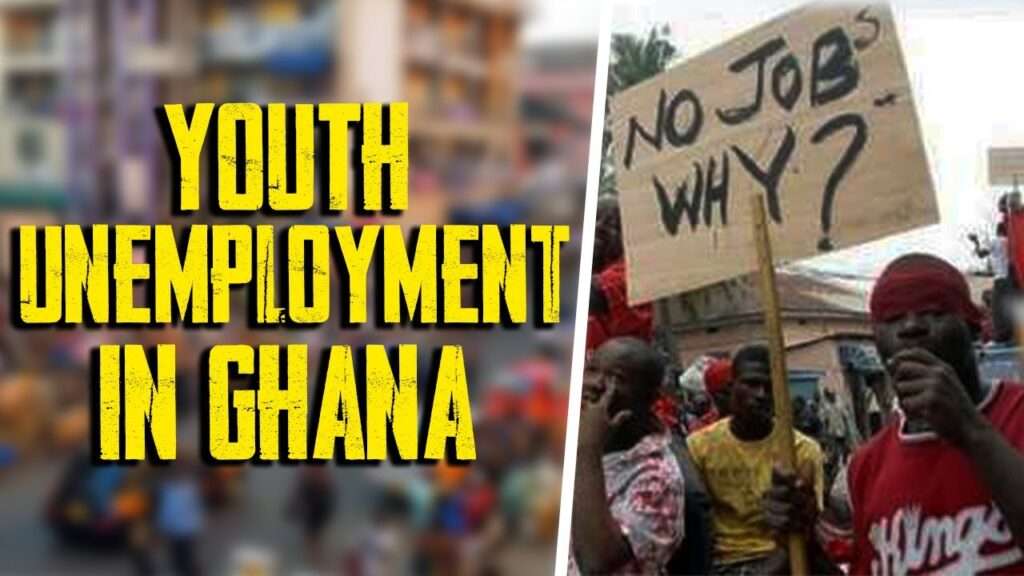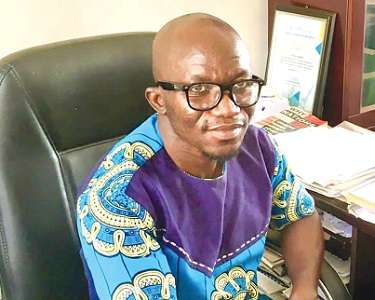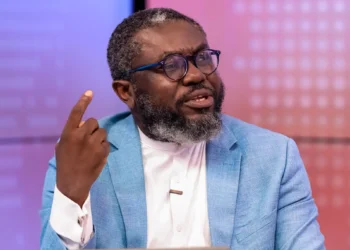Dr. George Asekere, a Political Scientist at the University of Education, Winneba, has commended the Chief of Staff’s directive for a payroll audit, describing it as timely and necessary.
He emphasized the importance of identifying the exact number of employees on the government payroll to address the persistent issue of ghost names.
Asekere highlighted that accurate data ensures efficient public financing and assures taxpayers that their contributions are not misused on non-existent or unauthorized individuals.
In an interview with the Vaultz News, he called for continuous efforts to maintain transparency and accountability in payroll management.
“When you ask a political scientist whether it has a political undertone, yes. Anything that you do, that will lead to a demand on the taxpayer’s resources, from the depth of the political actors, is political. So, yes, it’s political. It’s political seeking to spend the monies of the state. And so, when you ask people to audit payroll, there’s nothing partisanship about that.
“Everything is political because politics is about how to obtain and use resources. So, it’s positive in that direction. [However], it should be premature to reach such meanings that it has a partisanship undertone because we don’t even know what will come out of it”.
Dr. George Asekere
Dr. George Asekere noted that a payroll audit might reveal a lower number of employees in January compared to December due to retirements and the exit of political appointees, such as PROs, from the public sector.
He explained that lower numbers would not raise concerns, while higher figures could prompt scrutiny, especially if the increase appears abnormal.

He emphasized that public sector recruitment typically takes months and follows structured processes, which should be considered in interpreting the audit results.
Dr. Asekere further highlighted concerns about recruitment into the security services, emphasizing the need for equal opportunities for all qualified Ghanaians.
He questioned whether advertisements were placed in national dailies to ensure fair access and whether recruits underwent proper vetting through the Public Services Commission.
Dr. Asekere stressed that bypassing these processes creates inequality and called for such recruits to go through proper channels to legitimize their roles.
Accordingly, he stressed that this issue is non-political and non-partisan. “This is ensuring that the right thing is done because you are using public resources”.
Payroll Audit Essential for Accountability and Development
Furthermore, Dr. George Asekere emphasized that a payroll audit is crucial in addressing illegal employment and ensuring proper use of public funds.
By eliminating payments to unqualified individuals, the government can redirect resources to essential public projects such as roads, hospitals, and schools.
He added that the audit builds public trust, signaling a commitment to accountability and transparency.
According to Dr. Asekere, while a payroll audit may disrupt those benefiting from illegality, it will bring satisfaction to those advocating for fairness and proper governance.

“Now, if somebody is living in Adidome, Sandema, or Elembele after school, and they are supposed to be recruitmented, and you don’t publicize; you don’t place the advert, how will that person hear? Would you have been fair to that person? No, and in the first place, what are you doing to the state?
“The essence of all these things is to get the right people to protect all of us, in terms of security. The right people to work for all of us, so that the economy will grow. So, it doesn’t still matter, they are Ghanaians.I’m not interested in whether they are supporters of a party or not”.
Dr. George Asekere
Dr. Asekere maintained that employing qualified Ghanaians through proper procedures is acceptable, but issues arise when individuals bypass the correct processes to join the payroll.
He emphasized that the payroll audit reflects Ghana’s commitment to democratic values, rule of law, transparency, and accountability.
Ensuring adherence to proper employment procedures protects the public purse and aligns with governance principles.
He also noted that the directive targets employment made from December 7th, a period when major decisions impacting the public purse are restricted due to the upcoming transition.
According to him, this prevents the incoming president, whether incumbent or new, from being constrained in pursuing their priorities.
Asekere recalled that in 2016, appointments made six months before elections were terminated to avoid such conflicts.
He also noted that, at times, political actors may exploit the process to disrupt the system by causing individuals to lose their jobs, which is unacceptable. “But if the essence is just to follow this process there is nothing wrong with it.”.
Transparency, Key to Preventing Fraud and Patronage
Moreover, Dr. George Asekere emphasized the importance of transparency in public employment to prevent illegal hiring and patronage.
He shared an experience from 2017-2018, when efforts to obtain data on the number of public and civil servants in Ghana proved fruitless despite months of follow-up.
According to Asekere, this lack of accessible information raises concerns.

He also referenced recent issues involving ghost names in the National Service Scheme, highlighting the need for stricter measures to prevent such fraudulent activities.
“And so we must always ensure transparency. There’s nothing to hide. Absolutely nothing to hide. If you are qualified, and the post says you need a first degree, and you have a first degree, you need to go to an interview. If you go to the interview and have been selected, nobody will have a problem with you.
“Because the panel that interviewed you, saw you satisfied, and deemed you fit for the job, they recruited you. Nothing wrong with that. But when you jump the gun, jump the queue… We are hearing stories of young people, claiming that people gave them slots, it takes thousands of cedis to be recruited into the public sector, and so on”.
Dr. George Asekere
Accordingly, Dr. Asekere recommended extending the payroll audit to investigate reports of young people paying bribes for employment.
He stressed the need to protect these individuals, acknowledging that while the law holds both the giver and receiver accountable, the unemployed are often desperate and feel compelled to pay.
Asekere suggested allowing victims to report those who demanded payments without revealing their identities to address this systemic issue and prevent such illegal practices in public sector employment. “So we must go beyond what is being done, into investigating all the illegalities, related to recruitment and payment”.
READ ALSO: Netanyahu Expresses Gratitude To Trump























